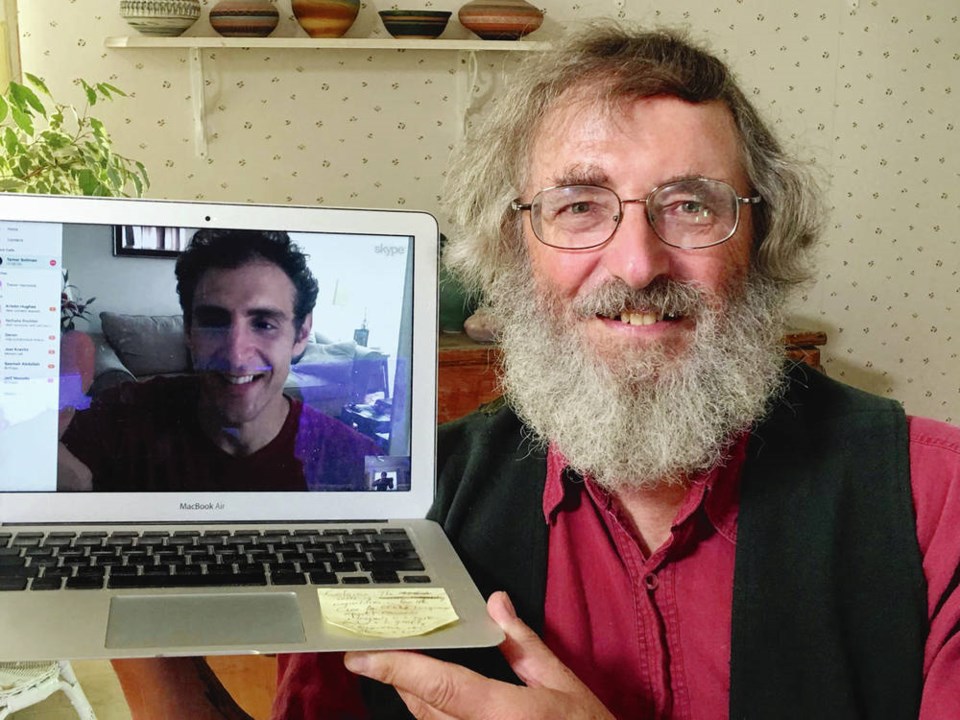Thirty-five years ago, I co-authored with Len Duhl the foundational paper for the World Health Organization’s new Healthy Cities project. In it, we identified 11 key factors that contribute to the health and wellbeing of people who live in cities and other communities.
One of those factors is access to a wide variety of experiences and resources with the possibility of multiple contacts, interaction and communication.
Fast-forward 35 years and we find isolation and loneliness have become a significant social and health problem, even before the COVID-19 pandemic made the creation of these important connections much more difficult.
So I was happy to be involved in an online event put on recently by the City of Victoria’s Neighbourhood Team. They showed The Great Disconnect, a one-hour documentary made by Tamer Soliman, an Ottawa-based health practitioner, and released in 2018.
I was one of the experts featured in the film, which I am happy to say recently won the Best Feature Award at the Better Cities Film Festival. The city invited Tamer, his partner Sarah (who was the writer and editor) and me to discuss the film after it was shown.
The film is about loneliness, which has been described as being as harmful to health as smoking, and the importance of connections. The film’s website asks: “Is it possible to overcome our modern culture of disconnectedness and rediscover how truly essential we are to one other?”
In the discussion that followed the film, I suggested that after the pandemic, we need the Great Reconnect, and suggested a couple of ways we might do that. I am sure many readers will have their own ideas — we need them all.
My first thought was to organize street or block parties all over the region as soon as we are able to, to bring neighbours together. It probably can’t be done on a single day, but a series of events over a few weekends would do the trick.
It seems most municipalities have a permitting system for block parties, which requires getting permission weeks in advance — so plan ahead. Some municipalities offer block party kits to help you plan the event. Esquimalt even has an event trailer, available to rent, that includes tables and chairs, a tent shelter, barricades, traffic cones, road-closure signage and games to encourage participation. They also encourage you to make it a “green” event.
My second thought was to organize a human chain to symbolically link people in neighbourhoods and municipalities throughout the region. While I doubt we could pull it off across the entire region — it’s a long way from Deep Cove to Sooke and beyond! — it could be done in individual municipalities and perhaps across the more urban core municipalities.
I did wonder about a world record, but a quick check with the Guinness Book of Records revealed that in 2004, more than five million people formed a chain more than 1,000 kilometres long in Bangladesh (although it was a political protest, so not quite the same thing).
It also occurred to me that there is another important reconnection we need to make, and that is between people and nature. So maybe we can combine these ideas in events that bring us together to celebrate nature.
How about a set of seasonal events to celebrate the summer and winter solstices and the equinoxes, which would re-connect us to the cycle of the seasons. Many cultures have traditions that celebrate the seasons, so we can celebrate in many diverse ways all over the region.
A spring festival around March 21st would roughly coincide with the peak of the cherry blossoms — so a cherry blossom festival. The summer solstice is now Indigenous Peoples Day in Canada, so we would not want to compete with or detract from that, but it could be a time to celebrate the land and waters of the region in company with Indigenous people.
Then, of course, the fall equinox could be a harvest festival and the winter solstice could build on the Lights on the Gorge and similar local events.
Many of you, I am sure, will have other ideas. But whatever we do, let’s reconnect with each other and with nature.
thancock@uvic.ca
Dr. Trevor Hancock is a retired professor and senior scholar at the University of Victoria’s School of Public Health and Social Policy.



